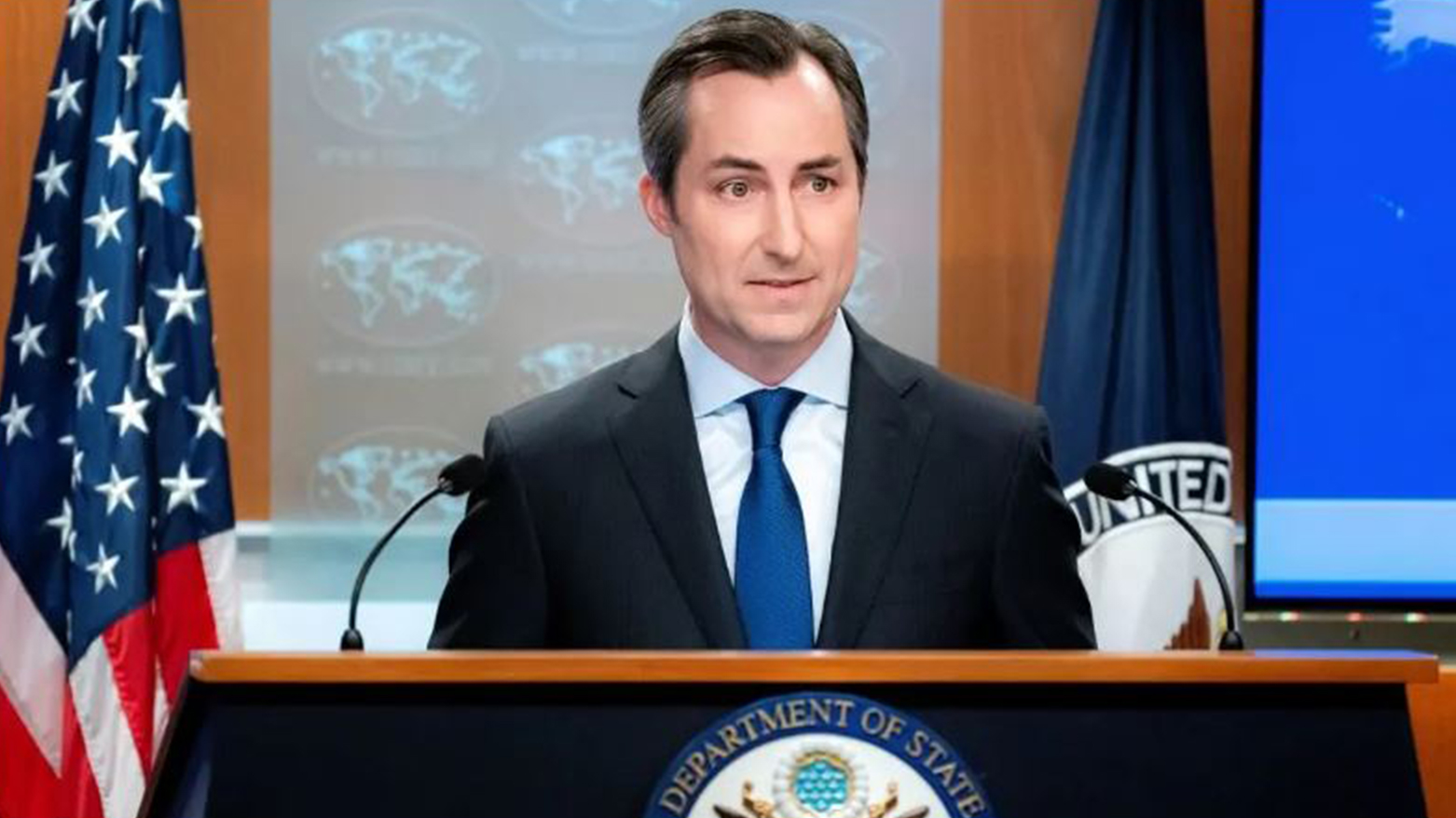U.S Criticizes ‘Burgeoning Security Partnership Between Iran and Russia’
Miller’s statement reflected a new U.S. policy, as expressed in Joe Biden’s State of the Union speech to Congress: the containment of Iran.

WASHINGTON DC, United States (Kurdistan 24) –State Department Spokesperson Matthew Miller, addressing journalists on Wednesday, expressed renewed U.S. criticism of Iran.
Asked about remarks that Secretary of State Antony Blinken had made on Tuesday in Paris, Miller said, “We have made very clear that we have been concerned about the burgeoning security partnership between Iran and Russia.”
Miller clarified that Blinken, who had been speaking in French, was addressing the issue of Iran’s supply of explosive drones to Russia, which Moscow has been using in its war with Ukraine.
Miller’s statement reflected a new U.S. policy on Iran, which was expressed by President Joe Biden in his March 7 State of the Union address to Congress: the containment of Iran.
Read More: Biden: Need to Contain ‘Threat Posed by Iran’
As Behnam Ben Taleblu, a Senior Fellow at the Foundation for Defense of Democracies, told Kurdistan 24, “Washington has been slow to see, let alone develop a policy, to offset the deepening political and military ties between Russia and Iran.”
“One would think,” he continued, “the advent of drone and potentially ballistic missile proliferation, plus deepening space, economic, and other cooperation between Russia and Iran would motivate Washington to develop a trans-Atlantic pressure policy to counter all sides of the burgeoning Russia-Iran relationship.”
That may, indeed, be just what is going on. There is a similar shift among European countries. That was reflected in the position of NATO, as the defense organization marks its 75th anniversary this week.
Along with North Korea, “Iran’s military support to Russia has serious global security consequences that the 32 member NATO alliance cannot ignore, [NATO] Secretary General Jens Stoltenberg said on Wednesday,” Reuters reported.
North Korea has supplied Russia with ballistic missiles, while Iran has supplied Shahed drones. In return, Moscow “has provided technology and supplies” that boost the two countries’ missile and nuclear programs, Reuters said. Moreover, “Western powers are increasingly concerned” that Iran in addition to North Korea “could soon also transfer ballistic missiles to Russia.”
Israel is the odd party out in the Western reassessment of Russian-Iranian relations. Israel long looked to Russia to check Iran, while giving it a free hand to attack Iranian targets in Syria.
In fact, Israeli analysts viewed such attacks as so routine that they referred to them quite casually–as “mowing the grass.”
Indeed, some three months ago, a former U.S. official, who served in Republican administrations from Ronald Reagan through George W. Bush and now heads a small Washington think-tank, spoke with Kurdistan 24.
Based on information from his Israeli contacts, he simply dismissed a complaint that Ukrainian officials leveled against Russia following Hamas’s brutal October 7 attack against Israel.
Ukrainian officials charged that Russia had been involved in assisting Hamas in its attack, including by providing training. Moscow, they said, sought to divert attention from its ongoing aggression against Ukraine, by creating a new conflict.
This Republican figure would not hear it. He actually responded by saying that Israeli Prime Minister Benjamin Netanyahu had been so accommodating of Russian President Vladimir Putin that the Russian leader would not support aggression against Israel.
That may well have been a common Israeli view, particularly in the beginning. Yet as recently as March 31, a major Israeli paper, while noting that Russia was, indeed, supporting Hamas and “relations [between Russia and Israel] have experienced strain since October 7,” went on to claim that relations “have not reached a breaking point, leaving room for potential diplomatic maneuvers in the near future.”
Shift in U.S., European Policy Toward Iran
When the Biden administration took office in Jan. 2021, one of its top priorities in the Middle East was to restore the Obama-era nuclear deal with Iran, formally known as the Joint Comprehensive Plan of Action (JCPOA.)
After more than a year of talks, mediated by the European Union (EU), however, the Biden administration reluctantly concluded that Iran was not interested in renewing the deal, although it would also have seen the lifting of sanctions.
Nonetheless, the EU, as led by its foreign policy chief, Josep Borrell, remained committed to reviving the JCPOA. As U.S. interest flagged in the summer of 2022, Borrell published an op-ed in Britain’s prestigious Financial Times titled “Now is the time to save the Iran nuclear deal.”
Read More: US remains cool to proposals for reviving Iran nuclear deal
But it was not to be. Indeed, some two years later, as Reuters reported, the foreign ministers of France, Germany, the Netherlands, the Baltic States, Czech Republic, Denmark, and Romania sent a letter to Borrell in mid-February “asking for new EU-wide sanctions on Iran.”
The new sanctions would target both Iran’s support of Russia, as well as Iranian individuals and companies that “arm, finance, and train Iranian proxies in the Middle East, as well as possible sanctions on the groups themselves,” Reuters said.
However, the EU is divided on the issue, while Borrell is reluctant to endorse new sanctions, remaining attached to his previous position. So the outcome remains to be seen.